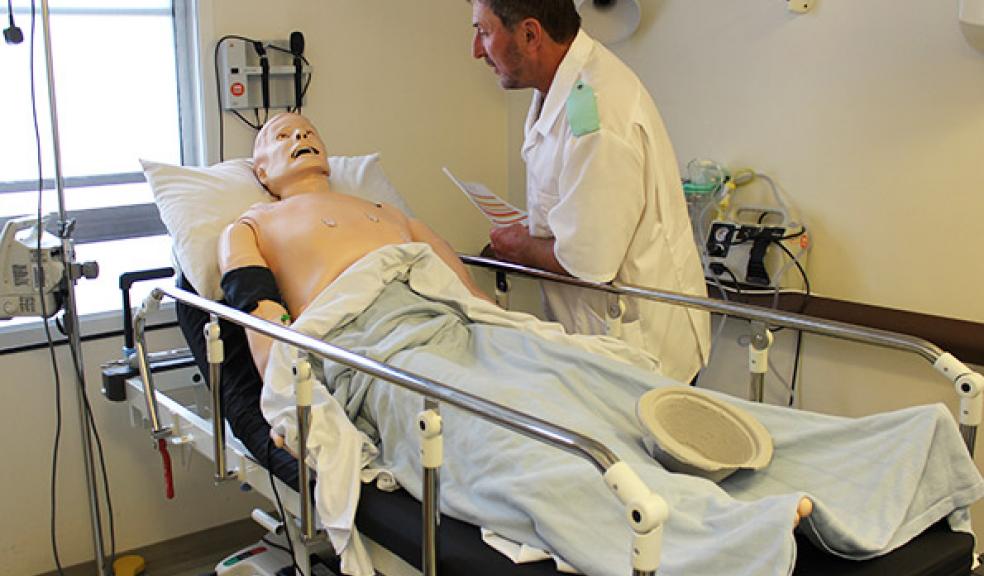
‘Sim Man’ is helping hospital staff to improve care
A lifelike, interactive mannequin that moves, talks and can display vital signs including breathing and heartbeat is being used at Derriford Hospital to improve patient safety.
The Human Factors Project, which has recently been launched, involves using the high tech ‘Sim Man’ to train hospital staff in lifelike situations. It gives employees experience and practice, with a variety of medical scenarios so they can improve their care for real patients. It is hoped the improvement will lead to a reduction in length of hospital stays and admissions to the intensive care unit.
Sim Man is a mannequin that is as realistic to a patient as possible. He can be made to breath, talk and change its vital signs depending on how staff respond to him.
Dr Catherine Ward, Consultant Anaesthetist, and one of the project leaders, said that it has already been a success and will be rolled out to other wards.
Dr Ward explained: “Simulation training - especially this type called ‘point of care training’ which means actually training in the clinical area where patients are treated, has not only helped improve team performance, adherence to protocols and improved non-technical skills, and patient outcomes, it also helps to pick up glitches or latent errors in the healthcare system, such as difficulty accessing drugs in an emergency or lack of appropriate equipment.
“This means potential errors can be picked up before they happen and systems can be changed to make it easier for staff to perform well as individuals and also as part oInteractive Mannequinf a team. Practicing emergency events should be standard across the whole healthcare system like in the oil, gas and nuclear industry.
“We are very good at Plymouth Hospitals Trust at giving access to staff to this kind of training, as our senior management team recognises its importance in promoting patient safety. We have been delivering simulation training since 2007.”
The project team is led by Dr Ward and Dr Michelle Chopra, Intensive Care Consultant. Team members are Dr Mike Forster and Tracy Mason, both Simulation Fellows in Human Factors, Dr Paul Sice, Simulation Lead for Plymouth Hospitals NHS Trust and is supported by Rachel Garlick, Simulation Suite Manager.
The project, which has been funded by Health Education South West as part of a grant which is also paying for two clinical educators, one doctor and one nurse for a year, is due to be rolled out to the Surgical Assessment Unit (SAU) in September.
Dr Mike Forster, Emergency Department Speciality Doctor, added: “Our aim is to improve the care of the deteriorating patient in the ward environment. We feel as a team that this will make a difference to our patients.”
Anyone who has a further interest in the Human Factors Project can contact Doctor Forster mike.forster@nhs.net













